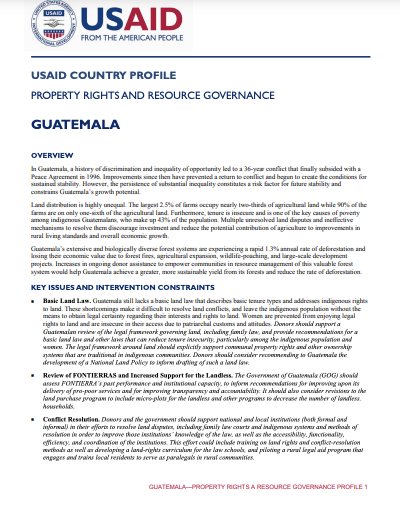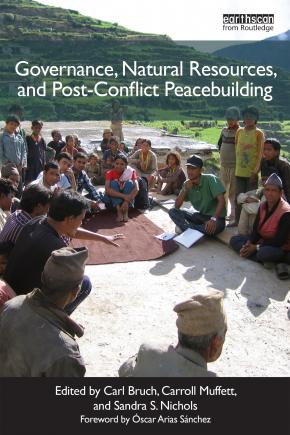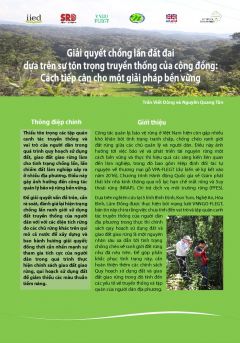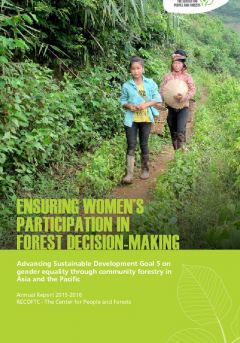Property Rights and Resource Governance Guatemala
In Guatemala, a history of discrimination and inequality of opportunity led to a 36-year conflict that finally subsided with a Peace Agreement in 1996. Improvements since then have prevented a return to conflict and begun to create the conditions for sustained stability. However, the persistence of substantial inequality constitutes a risk factor for future stability and constrains Guatemala’s growth potential. Land distribution is highly unequal. The largest 2.5% of farms occupy nearly two-thirds of agricultural land while 90% of the farms are on only one-sixth of the agricultural land.








